Find Help
More Items From Ergsy search
-
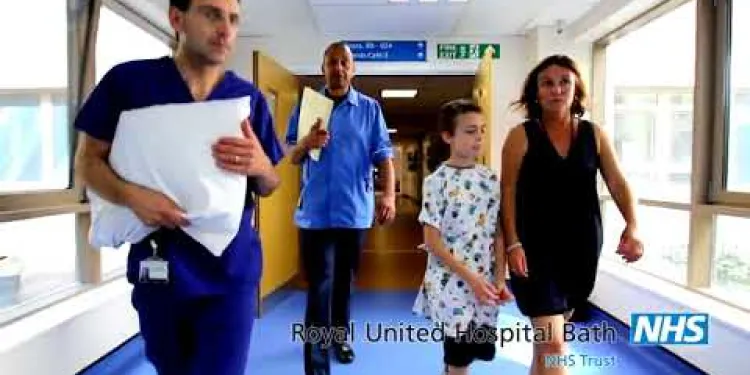
Having an anaesthetic for your operation - for over 8s
Relevance: 100%
-
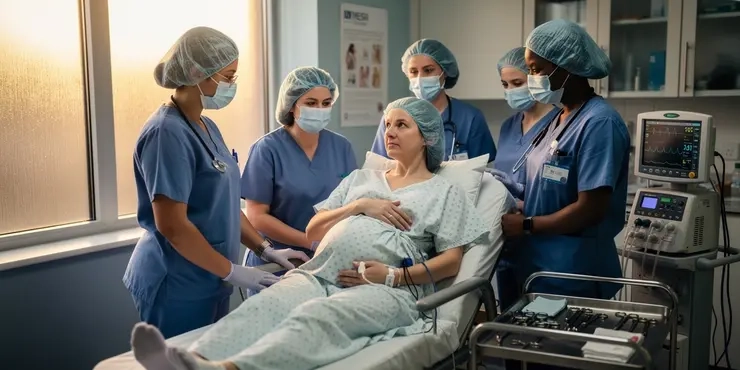
Anaesthetic procedure for elective caesarean section (C section)
Relevance: 51%
-

Top 5 questions about having a general anaesthetic
Relevance: 50%
-
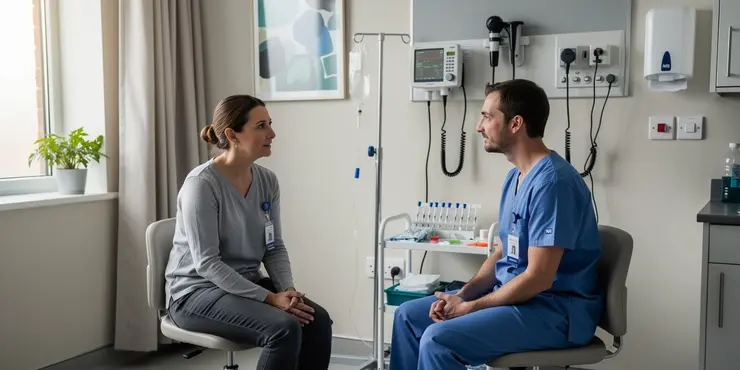
My General Anaesthetic: What's Going To Happen? Sarah's Story at Worcestershire Royal Hospital.
Relevance: 48%
-

Your anaesthetic choices for your planned hip or knee replacement surgery at the RUH.
Relevance: 41%
-
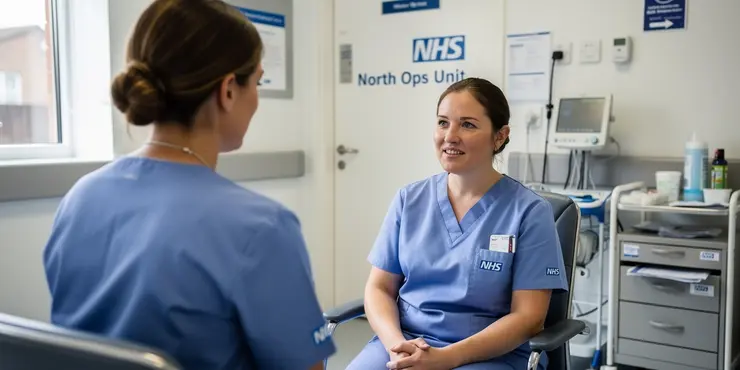
Surgery under local anaesthetic in the Minor Ops Unit at North Bristol NHS Trust
Relevance: 41%
-
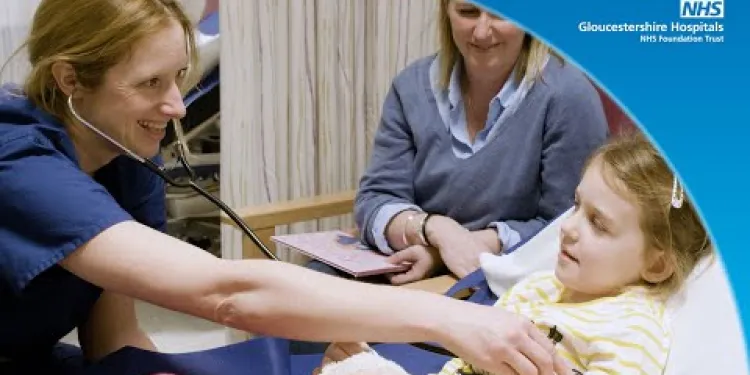
Having an operation at the Children’s Centre
Relevance: 33%
-
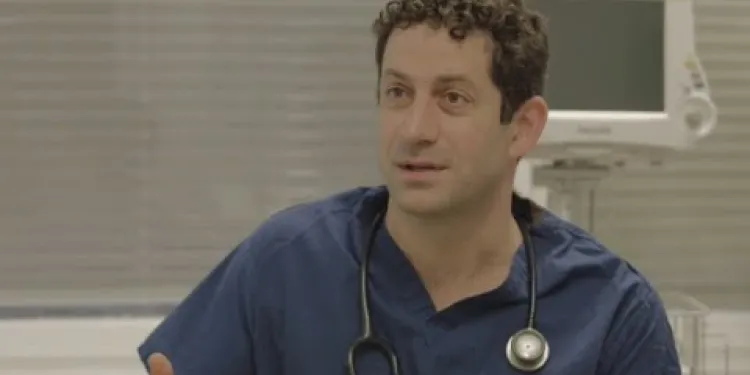
What to expect on the day of your operation
Relevance: 31%
-
How often are operation waiting times updated?
Relevance: 31%
-
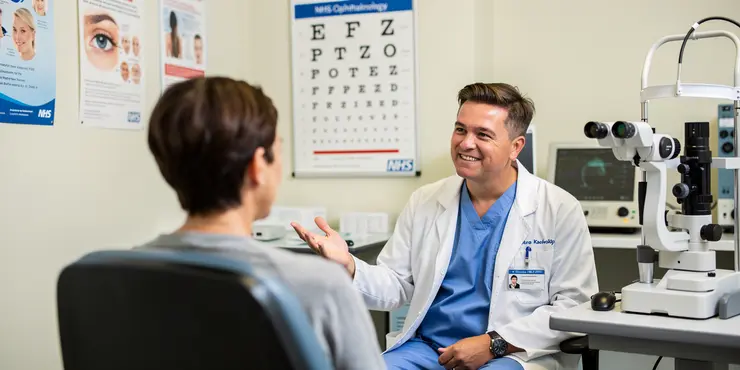
Your Cataract Operation
Relevance: 31%
-
Can I find operation waiting times in healthcare performance reports?
Relevance: 30%
-

Having an operation or procedure at the Royal Free London
Relevance: 30%
-
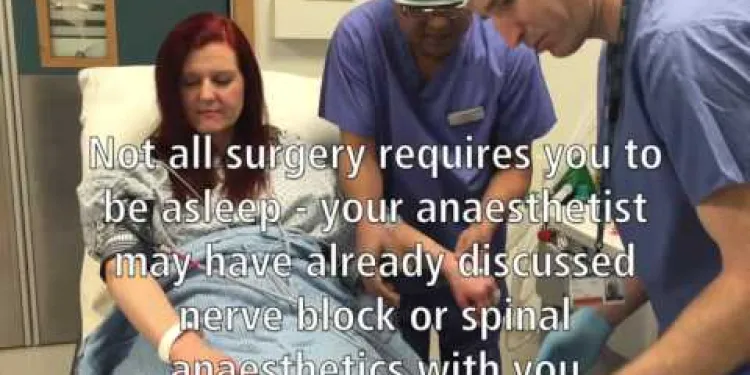
Your Operation at East Surrey Hospital
Relevance: 30%
-
Can I get information on average waiting times for operations?
Relevance: 30%
-
Do private hospitals have shorter waiting times for operations?
Relevance: 30%
-

Having an operation
Relevance: 29%
-
Are there specific resources for urgent operation waiting times?
Relevance: 29%
-
Are there apps available to check operation waiting times?
Relevance: 29%
-
Does my doctor have access to operation waiting times?
Relevance: 28%
-
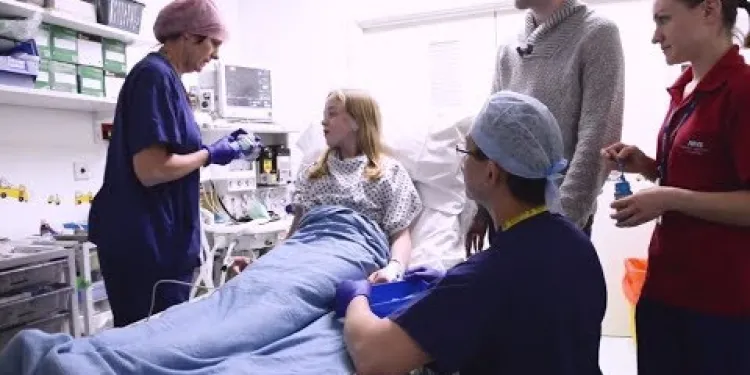
Having an operation in Oxford Children's Hospital with YiPpEe
Relevance: 27%
-
How can I find current waiting times for operations in my local hospital?
Relevance: 27%
-
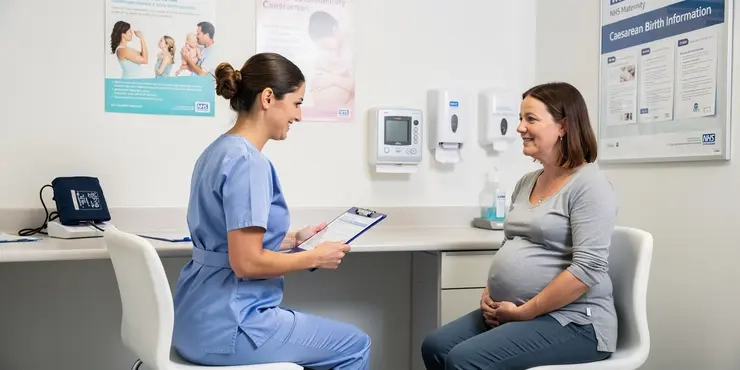
Pre operative Information for Planned Caesarean Birth
Relevance: 26%
-
Are waiting times for operations the same across all hospitals?
Relevance: 26%
-
How can I find information on waiting times for an operation in my area?
Relevance: 25%
-

Is Omeprazole available over the counter?
Relevance: 25%
-

How do scammers trick victims over the phone?
Relevance: 24%
-
Can I appeal a long waiting time for my operation?
Relevance: 24%
-

What steps can a company take if shareholder disputes begin to impact business operations?
Relevance: 22%
-
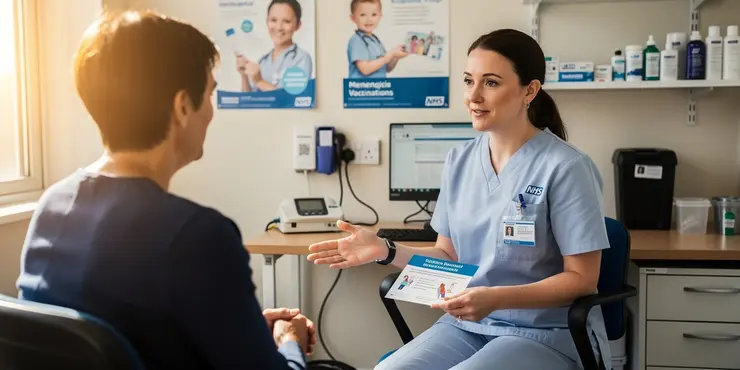
Are adults over 25 recommended for meningitis vaccination?
Relevance: 22%
-

Can medication affect driving ability in people over 70?
Relevance: 22%
-
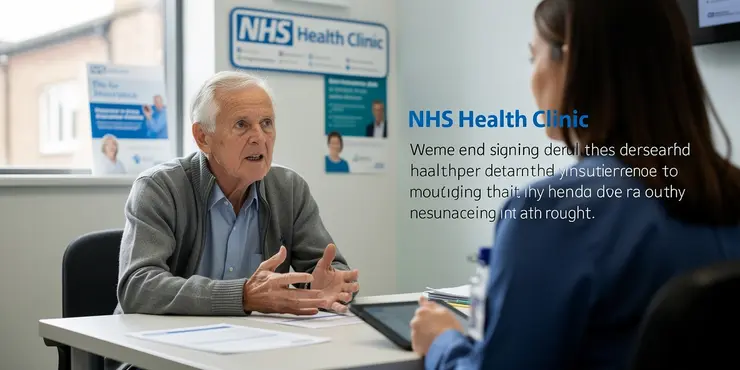
Do insurance rates increase for drivers over 70?
Relevance: 22%
-
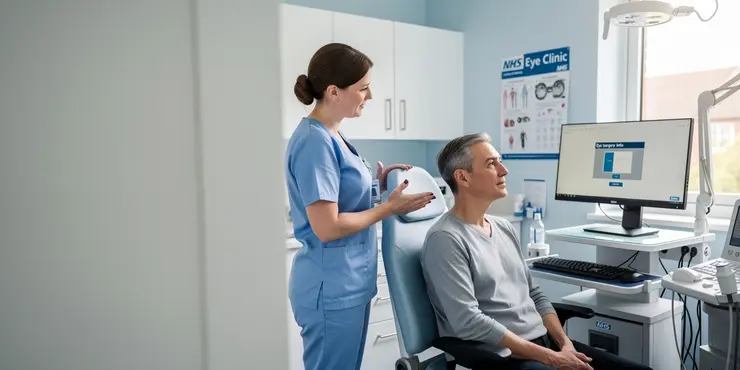
Thyroid eye disease. Squint surgery - The operation
Relevance: 21%
-

Do gig workers have intellectual property rights over their work?
Relevance: 21%
-
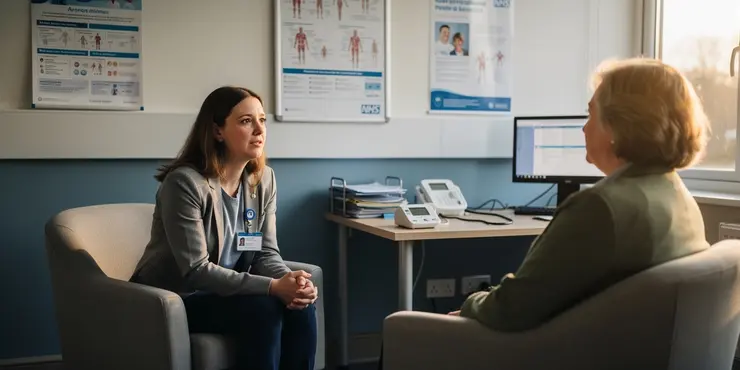
How does dementia progress over time?
Relevance: 21%
-

Can SEND status change over time?
Relevance: 20%
-
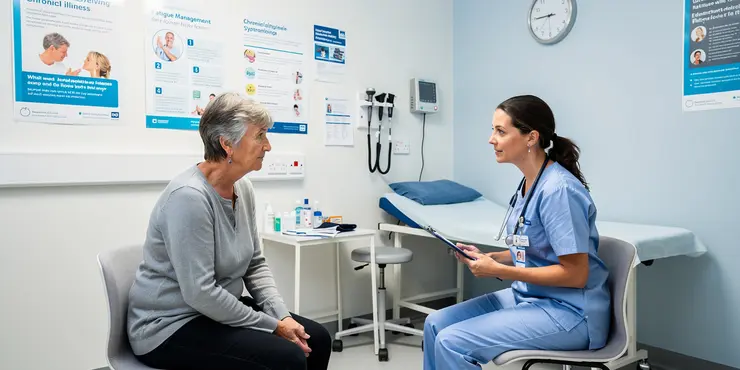
Can CFS symptoms fluctuate over time?
Relevance: 20%
-
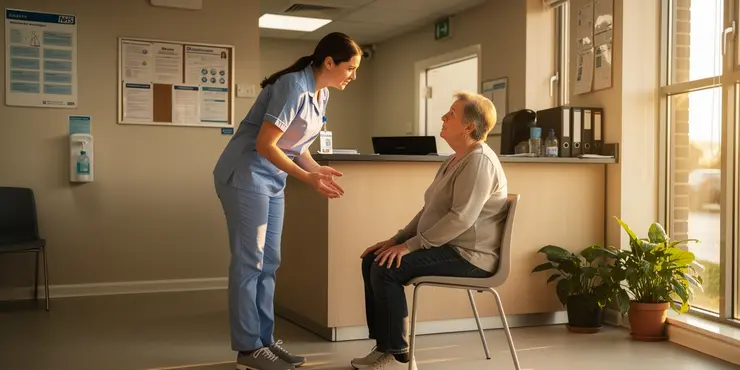
What are the main advantages of PCP over HP?
Relevance: 20%
-
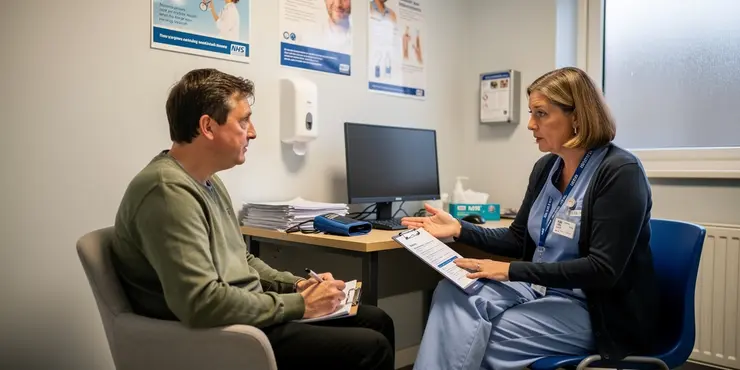
Has ketamine's classification changed over time?
Relevance: 20%
-
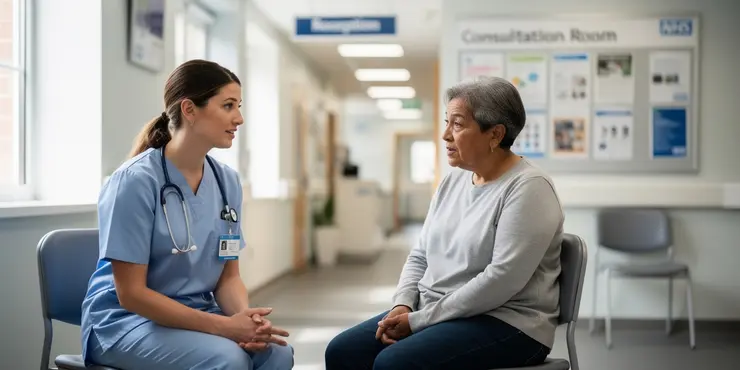
Watchdog Raises Concerns Over Commercial Landlord Regulations
Relevance: 20%
-
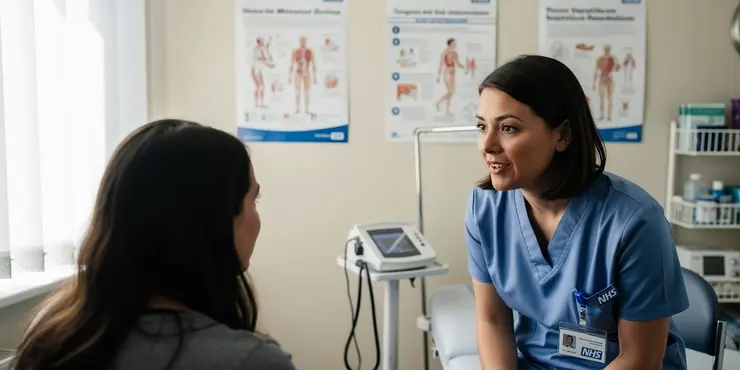
Why might someone choose Paracetamol over NSAIDs?
Relevance: 20%
Having an Anaesthetic for Your Operation - For Over 8s
What is an Anaesthetic?
An anaesthetic is a special medicine that makes you go to sleep or stops you from feeling pain during an operation. There are different types of anaesthetics: general anaesthetic, which makes you go to sleep, and local anaesthetic, which numbs a specific part of your body. Your doctor will talk to you and your parents about which one is best for you.Before Your Operation
Before your operation, you might have a meeting with an anaesthetist - a doctor who specializes in giving anaesthetics. They will ask you about your health, any allergies, and if you have had anaesthetic before. Don't worry, you can ask them any questions you have. On the day of your operation, you might be asked not to eat or drink for a few hours before.During Your Operation
When it's time for your operation, you will be taken to the operating room. If you're having a general anaesthetic, you might breathe it in through a mask or receive it through a small needle in your hand. You'll fall asleep very quickly and won't feel anything during the operation. If you're having a local anaesthetic, you will stay awake, but the area of your body where you are having the operation will be numb.After Your Operation
When your operation is finished, you will wake up in a recovery room. Nurses and doctors will be there to make sure you are okay. You might feel a bit sleepy or groggy, and it's normal to feel this way for a little while. If you have any pain or feel sick, let the nurse know so they can help you feel better.Going Home
Once you’re feeling better and the doctors are happy with your recovery, you can go home. The anaesthetist will give you some advice to follow, such as resting and taking it easy for the next few days. You might also be given some medicine to help with any pain. Make sure to follow the instructions given by your healthcare team for the best recovery.Don't Be Afraid to Ask Questions
It's absolutely okay to ask lots of questions. Surgery can be a bit scary, but doctors and nurses are there to help you and make sure you feel safe and comfortable. Whether it's about the anaesthetic, the surgery, or what happens afterwards, don’t hesitate to speak up. Having an operation might seem daunting, but understanding what to expect can help you feel more prepared and confident. Your medical team is there to ensure everything goes smoothly and to help you get back to feeling your best as soon as possible.Having an Anaesthetic for Your Operation - For Over 8s
What is an Anaesthetic?
An anaesthetic is a special medicine. It helps you sleep or stops pain during an operation. There are two main types: - **General anaesthetic**: Makes you sleep. - **Local anaesthetic**: Numbs a certain part of your body. Your doctor will talk to you and your parents about which is best for you.Before Your Operation
Before your operation, you will meet an anaesthetist. An anaesthetist is a doctor who gives anaesthetics. They will ask about your health and if you have allergies. You can ask them any questions. On the day of your operation, you might not be able to eat or drink for a few hours before.During Your Operation
When it's time, you will go to the operating room. - **General anaesthetic**: You might breathe through a mask or get it through a small needle in your hand. You will fall asleep quickly and won't feel anything. - **Local anaesthetic**: You stay awake, but the part getting operated on will be numb.After Your Operation
Afterwards, you will wake up in a recovery room. Nurses and doctors will be there to help you. You might feel sleepy or groggy, and that's normal. If you have pain or feel sick, tell the nurse. They can help you feel better.Going Home
Once you feel better and the doctors are happy, you can go home. The anaesthetist will give you advice, like resting for a few days. You might get medicine for pain. Follow the healthcare team's instructions to get better.Don't Be Afraid to Ask Questions
It's okay to ask questions. Surgery can be a little scary, but doctors and nurses want to help you feel safe. Ask about the anaesthetic, the surgery, or what happens after. Knowing what to expect can make you feel ready and confident. Your medical team is there to help everything go well and to help you feel better soon.Frequently Asked Questions
What is an anaesthetic?
An anaesthetic is a medicine that stops you feeling pain during your operation. There are different types of anaesthetics, including general anaesthetics, which make you sleep, and local anaesthetics, which numb part of your body.
Will I be awake during the operation?
This depends on the type of anaesthetic used. With a general anaesthetic, you will be asleep. With a local or regional anaesthetic, you may be awake but won't feel pain in the area being operated on.
How is the anaesthetic given?
Anaesthetics can be given through an injection, inhaled as a gas, or applied as a cream or gel to your skin.
Will I feel anything during the operation?
With a general anaesthetic, you won't feel anything because you will be asleep. With local or regional anaesthetics, you won't feel pain in the numbed area.
How long does it take for the anaesthetic to wear off?
This can vary, but anaesthetic effects typically wear off within a few hours after the operation. Your medical team will monitor you until you are fully awake and ensure you're comfortable.
Are there any side effects of anaesthetics?
Some people may experience side effects such as nausea, sore throat, or drowsiness. Most side effects are mild and go away on their own.
Is anaesthesia safe?
Anaesthesia is generally very safe. Anaesthetists are highly trained doctors who monitor you closely to ensure your safety during the operation.
Can I eat or drink before having an anaesthetic?
You will be given specific instructions about fasting before your surgery. Generally, you should not eat or drink anything for several hours before the procedure.
What if I'm scared about getting an anaesthetic?
It's natural to feel a bit worried. Talk to your anaesthetist or nurse about your concerns. They can explain what will happen and help you feel more comfortable.
Will I need to stay in the hospital after the operation?
This depends on the type of surgery and anaesthetic used. Some people go home the same day, while others may need to stay in the hospital for a day or two.
Can I have someone with me while I get the anaesthetic?
Usually, a parent or guardian can be with you until you go to the operating theatre. After that, they will need to wait while you are in surgery but will be informed when you are in recovery.
Will I remember anything after the anaesthetic?
With general anaesthesia, you typically won't remember anything from the time you start to go to sleep until you wake up. With local anaesthesia, you may remember the procedure but won't feel pain.
What happens if I have an allergic reaction to the anaesthetic?
Allergic reactions to anaesthetics are very rare. Your anaesthetist is trained to handle any allergic reactions and will take immediate action to ensure your safety.
What should I do if I feel unwell after the operation?
Inform the medical staff immediately if you feel unwell after your operation. They will assess and manage any symptoms or side effects you may experience.
Can I participate in activities after having an anaesthetic?
After a general anaesthetic, you may need some rest and recovery time. Avoid activities that require alertness for at least 24 hours. Your doctor will provide specific advice based on your surgery and recovery.
What is an anaesthetic?
An anaesthetic is a special medicine. It stops you from feeling pain when a doctor does an operation. There are two types:
- Local anaesthetic: This numbs a small area, so you stay awake but can’t feel pain there.
- General anaesthetic: This makes you sleep during the operation.
If you feel worried about anaesthetics, you can talk to a doctor or nurse. You can also ask someone you trust to help you understand.
An anaesthetic is a medicine that helps you not feel pain during an operation. There are different kinds of anaesthetics. Some are general anaesthetics, which make you sleep. Others are local anaesthetics, which make one part of your body numb.
Will I be awake during the operation?
Will I be asleep while the doctors do the surgery?
It depends on the kind of medicine you get. If you get medicine that makes you sleep, you will be asleep during the operation. If you get medicine for just one part of your body, you will be awake, but you won't feel any pain where the doctor is working.
How do you get the medicine to make you sleepy?
You can get medicine to make you numb or sleepy in different ways. It can be a shot with a needle, a gas you breathe in, or a cream or gel put on your skin.
If you find reading hard, you can try reading with someone to help. You can also use picture aids or listen to someone read it out loud.
Will I feel anything during the operation?
No, you will not feel anything during the operation. The doctor will give you special medicine so you do not feel pain. This is called anesthesia. It helps you stay asleep and feel comfortable.
If you feel worried, tell your nurse or doctor. They can answer your questions and help you feel better.
You can also bring a favorite toy or listen to music to help you feel relaxed before the operation.
When you have a big sleep medicine (called a general anaesthetic), you go to sleep and don't feel anything.
If you have a small sleep medicine (called local or regional anaesthetics), you stay awake but don't feel any pain in the part of your body where the medicine is given.
Helpful tip: If you're worried, talk to your doctor or nurse. They can help you understand and feel safe.
When will the numb feeling go away after you get medicine for pain?
The sleepy medicine from an operation can wear off in a few hours. Your doctors and nurses will watch you until you wake up. They will make sure you feel okay.
Do anaesthetics have any side effects?
Anaesthetics are medicines that stop pain during surgery. Sometimes, they might cause side effects. This means they could make you feel different for a short time.
Here are some common side effects you might feel:
- Feeling sleepy or tired
- Feeling dizzy or wobbly
- Feeling sick or wanting to throw up
- Getting a sore throat
If you feel any side effects, tell a doctor or nurse. They are there to help you feel better. You can also talk to someone you trust about how you feel. Remember, if you're scared, it's okay to ask questions or use tools like pictures or videos to understand better. These can make things easier to know what to expect.
Some people might feel unwell, have a sore throat, or feel sleepy. Most of the time, these feelings are not serious and will stop by themselves.
Is anaesthesia safe?
Anaesthesia is medicine to help you not feel pain during a surgery or a procedure.
Anaesthesia is mostly safe for most people. But like any medicine, it can have risks.
Doctors are trained to give anaesthesia safely. They watch you closely during the procedure.
It is important to tell your doctor about your health. This helps choose the best anaesthesia for you.
If you are scared, you can ask your doctor questions. It can help to have someone with you for support and comfort.
Using calming techniques, like deep breathing or listening to music, can also help.
Being put to sleep for an operation is usually very safe. The doctors who help with this are experts. They watch you carefully to keep you safe during the surgery.
Can I eat or drink before having an anaesthetic?
Before you have an anaesthetic, you should not eat or drink anything. This is very important. Make sure to ask your doctor or nurse what time you need to stop eating or drinking. They will tell you exactly when to stop.
If you have trouble remembering, you can set an alarm or ask someone to remind you. Also, try writing it down so you do not forget.
You will get instructions on when to stop eating before your surgery. Usually, you cannot eat or drink for a few hours before your surgery.
What if I'm scared about getting an anaesthetic?
It's okay to feel scared about getting an anaesthetic. Here are some things you can do to feel better:
- Talk to your doctor or nurse. They can explain what will happen and answer your questions.
- Ask if a family member or friend can stay with you to help you feel calm.
- Practice deep breathing to help you relax.
- Think about or look at things that make you happy before the anaesthetic.
Remember, you are not alone, and there are people who can help you feel safe and comfortable.
It is okay to feel worried. Tell your anaesthetist or nurse what you are scared of. They can tell you what will happen. This can help you feel better.
Will I need to stay in the hospital after the operation?
Will I have to stay in the hospital after the surgery?
The doctor will tell you if you need to stay in the hospital after your operation.
Some people stay in the hospital for a while to rest and get better.
Other people can go home the same day.
Ask your doctor what will happen after your operation. They will give you instructions.
If you find it hard to remember things, you can:
- Write notes on paper
- Ask someone you trust to help you
- Use a voice recorder on a phone
This depends on the kind of surgery and medicine they give you to make you sleep. Some people go home the same day. Other people might need to stay in the hospital for one or two days.
Can I have someone with me when I get the sleepy medicine?
You can ask a friend or family member to stay with you when you get the sleepy medicine. You feel less worried when someone is with you.
If you need help understanding, you can use pictures, videos, or ask someone to explain things to you.
Your mom, dad, or the person taking care of you can stay with you before your operation. When you go for the operation, they will wait outside. They will be told when you wake up.
Will I remember anything after the anaesthetic?
An anaesthetic is medicine that helps you sleep during an operation. It makes sure you don’t feel anything.
When you wake up, you might not remember what happened during the operation. This is normal and okay.
If you have questions, you can ask your doctor or nurse. They can help you understand.
To help you feel better, you can:
- Ask someone you trust to explain things to you.
- Write down any questions you have before the operation.
- Use pictures or drawings to help understand.
When you have general anaesthesia, you go to sleep and don't remember anything. You wake up when it's all done. With local anaesthesia, you stay awake. You might remember what happens, but it won't hurt.
If you find reading hard, you can use some tools to help. Audiobooks or text-to-speech apps can read out loud to you. You can also use apps that make reading easier by changing the size or color of words. Don't be afraid to ask someone to read with you or to help explain things if you need it.
What if I have an allergy to the medicine that makes me sleep during an operation?
Some people can get sick from the medicine that helps you sleep during an operation. This is called an allergy.
If this happens, the doctors and nurses will help you right away.
They know what to do to make you feel better. They will give you medicine to stop the allergy.
It is important to tell your doctor if you have any allergies. You can use pictures or ask someone to help explain your allergies before the operation.
It is not common for people to have allergies to medicines that make you sleep during surgery. The doctor who helps you sleep is ready to help if you do have a reaction. They will make sure you stay safe.
What to Do if You Feel Sick After Your Operation
If you feel sick after your operation, tell a doctor or a nurse. They can help you feel better.
Here are some tips:
- Rest as much as you can.
- Drink water and eat healthy foods.
- Ask someone to help you with things you find hard to do.
If you still feel sick, call a doctor or go to the hospital.
You might find it helpful to use a notebook or a voice recorder to remember how you feel. This can help the doctor understand what you are going through.
Tell the doctors and nurses right away if you feel sick after your operation. They will check how you are feeling and help with any problems you have.
Can I join in activities after having an anaesthetic?
After you have an anaesthetic, your body needs time to rest. It's like after waking up from a big sleep. Here are some tips:
- Take it easy. It's good to sit down and relax.
- Ask someone to stay with you, to help out.
- Wait a day or two before doing big activities like sports or riding a bike.
- If you feel dizzy or tired, stop and rest.
- Drink water and eat light foods.
Remember: Always ask the doctor what is best for you!
After you have had medicine to make you sleep during an operation, you will need to rest. Do not do anything that needs you to be very awake for at least one day. Your doctor will tell you what you should do after your operation to help you get better.
Useful Links
This website offers general information and is not a substitute for professional advice.
Always seek guidance from qualified professionals.
If you have any medical concerns or need urgent help, contact a healthcare professional or emergency services immediately.
Some of this content was generated with AI assistance. We’ve done our best to keep it accurate, helpful, and human-friendly.
- Ergsy carfully checks the information in the videos we provide here.
- Videos shown by Youtube after a video has completed, have NOT been reviewed by ERGSY.
- To view, click the arrow in centre of video.
- Most of the videos you find here will have subtitles and/or closed captions available.
- You may need to turn these on, and choose your preferred language.
- Go to the video you'd like to watch.
- If closed captions (CC) are available, settings will be visible on the bottom right of the video player.
- To turn on Captions, click settings .
- To turn off Captions, click settings again.
More Items From Ergsy search
-

Having an anaesthetic for your operation - for over 8s
Relevance: 100%
-

Anaesthetic procedure for elective caesarean section (C section)
Relevance: 51%
-

Top 5 questions about having a general anaesthetic
Relevance: 50%
-

My General Anaesthetic: What's Going To Happen? Sarah's Story at Worcestershire Royal Hospital.
Relevance: 48%
-

Your anaesthetic choices for your planned hip or knee replacement surgery at the RUH.
Relevance: 41%
-

Surgery under local anaesthetic in the Minor Ops Unit at North Bristol NHS Trust
Relevance: 41%
-

Having an operation at the Children’s Centre
Relevance: 33%
-

What to expect on the day of your operation
Relevance: 31%
-
How often are operation waiting times updated?
Relevance: 31%
-

Your Cataract Operation
Relevance: 31%
-
Can I find operation waiting times in healthcare performance reports?
Relevance: 30%
-

Having an operation or procedure at the Royal Free London
Relevance: 30%
-

Your Operation at East Surrey Hospital
Relevance: 30%
-
Can I get information on average waiting times for operations?
Relevance: 30%
-
Do private hospitals have shorter waiting times for operations?
Relevance: 30%
-

Having an operation
Relevance: 29%
-
Are there specific resources for urgent operation waiting times?
Relevance: 29%
-
Are there apps available to check operation waiting times?
Relevance: 29%
-
Does my doctor have access to operation waiting times?
Relevance: 28%
-

Having an operation in Oxford Children's Hospital with YiPpEe
Relevance: 27%
-
How can I find current waiting times for operations in my local hospital?
Relevance: 27%
-

Pre operative Information for Planned Caesarean Birth
Relevance: 26%
-
Are waiting times for operations the same across all hospitals?
Relevance: 26%
-
How can I find information on waiting times for an operation in my area?
Relevance: 25%
-

Is Omeprazole available over the counter?
Relevance: 25%
-

How do scammers trick victims over the phone?
Relevance: 24%
-
Can I appeal a long waiting time for my operation?
Relevance: 24%
-

What steps can a company take if shareholder disputes begin to impact business operations?
Relevance: 22%
-

Are adults over 25 recommended for meningitis vaccination?
Relevance: 22%
-

Can medication affect driving ability in people over 70?
Relevance: 22%
-

Do insurance rates increase for drivers over 70?
Relevance: 22%
-

Thyroid eye disease. Squint surgery - The operation
Relevance: 21%
-

Do gig workers have intellectual property rights over their work?
Relevance: 21%
-

How does dementia progress over time?
Relevance: 21%
-

Can SEND status change over time?
Relevance: 20%
-

Can CFS symptoms fluctuate over time?
Relevance: 20%
-

What are the main advantages of PCP over HP?
Relevance: 20%
-

Has ketamine's classification changed over time?
Relevance: 20%
-

Watchdog Raises Concerns Over Commercial Landlord Regulations
Relevance: 20%
-

Why might someone choose Paracetamol over NSAIDs?
Relevance: 20%


